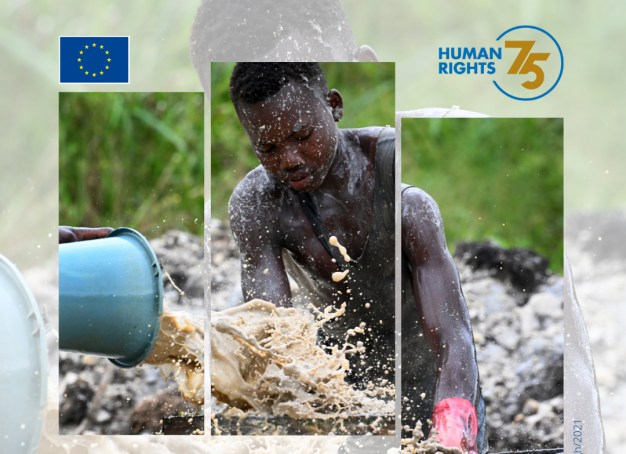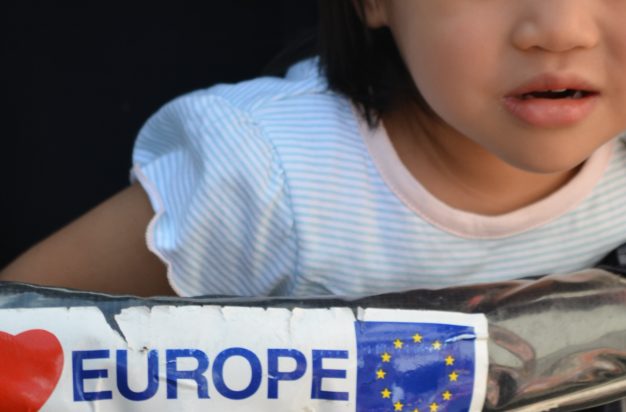
European Union – it’s time for everyone to ‘step up the fight’ against child labour
Every year on June 12th, The European Union observes World Day Against Child Labour to promote awareness that child labour robs dozens of millions of kids of their childhood and to generate more action to put an end to child labour once and for all.
In 2022 we were shocked by the fact that global progress to end child labour has stalled for the first time in 20 years. This year we must recognise that, also for the first time in 20 years, child labour is on the rise. 160 million children are in child labour.
Half of them, 80 million, are doing the worst and hazardous work, some being enslaved, separated from their families, exposed to serious hazards and illnesses, sexually exploited or left to fend for themselves on the streets of large cities – often at a very early age; that is work with a real threat to their physical and mental health.
What these figures mean: one in ten children in the world are victims of child labour, and while there is progress around the world, the number is currently growing. This year, the International Labour Organisiation (ILO) calls on the international community to support greater social justice and step up the fight against child labour. Social protection is key to providing an environment to keep children away from this reality, and the EU continues working with its international partners to this end.
‘Children fending for themselves on city streets’
On the 2023 World Day against Child Labour, the European Commission and the High Representative underlined that no sustainable and equitable future is achievable until children around the world will continue to be exploited, denied their rights, and hindered from reaching their full development.
The European Union has a longstanding commitment to the eradication of child labour and the promotion of the rights of children. The EU Strategy for the Rights of the Child 2021-2025, supported by the Youth Action Plan in EU External Action aims to ensure that all children in the EU enjoy their rights and that the EU promotes and protects the rights of children globally. As laid out in the EU Action Plan on Human Rights and Democracy 2020-2024, the European Union is determined to eradicate forced labour, end modern slavery and human trafficking, and extinguish all forms of child labour by 2025.
The fight against child labour needs a comprehensive approach, effective in addressing the root causes of this phenomenon, including poverty, inequality, lack of access to education and limited social protection offered to children, while promoting decent work for adults worldwide. Given this, EU actions in this area include supporting and enforcing effective legislation against child labour; promoting social welfare programmes for poor households that are vulnerable to child labour; and strengthening access to education, including in situations of conflict or crisis and for children who are on the move both within and between countries, and providing them with protection services.
The EU seeks to ensure that all countries around the world implement minimum standards for the protection of children in the workforce laid down in the Conventions of the International Labour Organization, notably the Convention on minimum age (No.138) and the Convention on worst forms of child labour (No. 182), while advocating for a higher level of protection.
‘Eliminating child labour needs partnerships’
The EU is also involved in several projects and programmes aimed at eradicating child labour. The CLEAR COTTON project aims to combat child labour in the cotton supply chain, while the Sustainable Cocoa program promotes the use of sustainable cocoa production methods and works to prevent child labour in cocoa farming.

Eliminating child labour needs partnerships. This is why the EU has enhanced further its collaboration with governments, international organisations, social partners, and civil society and has strengthened its partnership with the United Nations and other international organisations to combat child labour in particular. The EU contributes funds to development programmes aimed at reducing child labour, such as the ILO’s International Programme on the Elimination of Child Labour (IPEC+), and has supported initiatives to combat child labour in specific sectors such as mining and construction. The EU is in the process of joining Alliance 8.7, and together with its partners is committed to accelerate all necessary efforts to protect and safeguard the rights of all children, and to ensure that they can enjoy their childhood free from all forms of exploitation and abuse.
One of the key components of the EU’s approach to addressing child labour is to promote corporate social responsibility and sustainable supply chains. The Directive on Corporate Sustainability Due Diligence proposed in 2022, requires EU companies to perform due diligence to address human rights abuses, including child labour, in their supply chains.
‘Free from exploitation and abuse’
Similarly, the Commission has proposed a regulation to prevent the importation of goods produced through forced child labour. Moreover, through projects like the Sustainable Cocoa program the EU promotes the use of sustainable cocoa production methods, and works to prevent child labour in cocoa farming.
This year as we celebrate the 75th anniversary of the Universal Declaration of Human Rights which laid the foundation of international human rights law. A number of its provisions foresee special protection, care and assistance for children (notably Articles 25) and Article 26 the Right to Education. Child rights were further developed in the Convention on the Rights of the Child , the most ratified international human rights treaty in history. It lays down the right of the child to be protected from economic exploitation and from performing work that is likely to be hazardous or harmful or to interfere with the child’s education (Article 32).
On this day, as every day, we invite all to join the effort to Let children be children!




